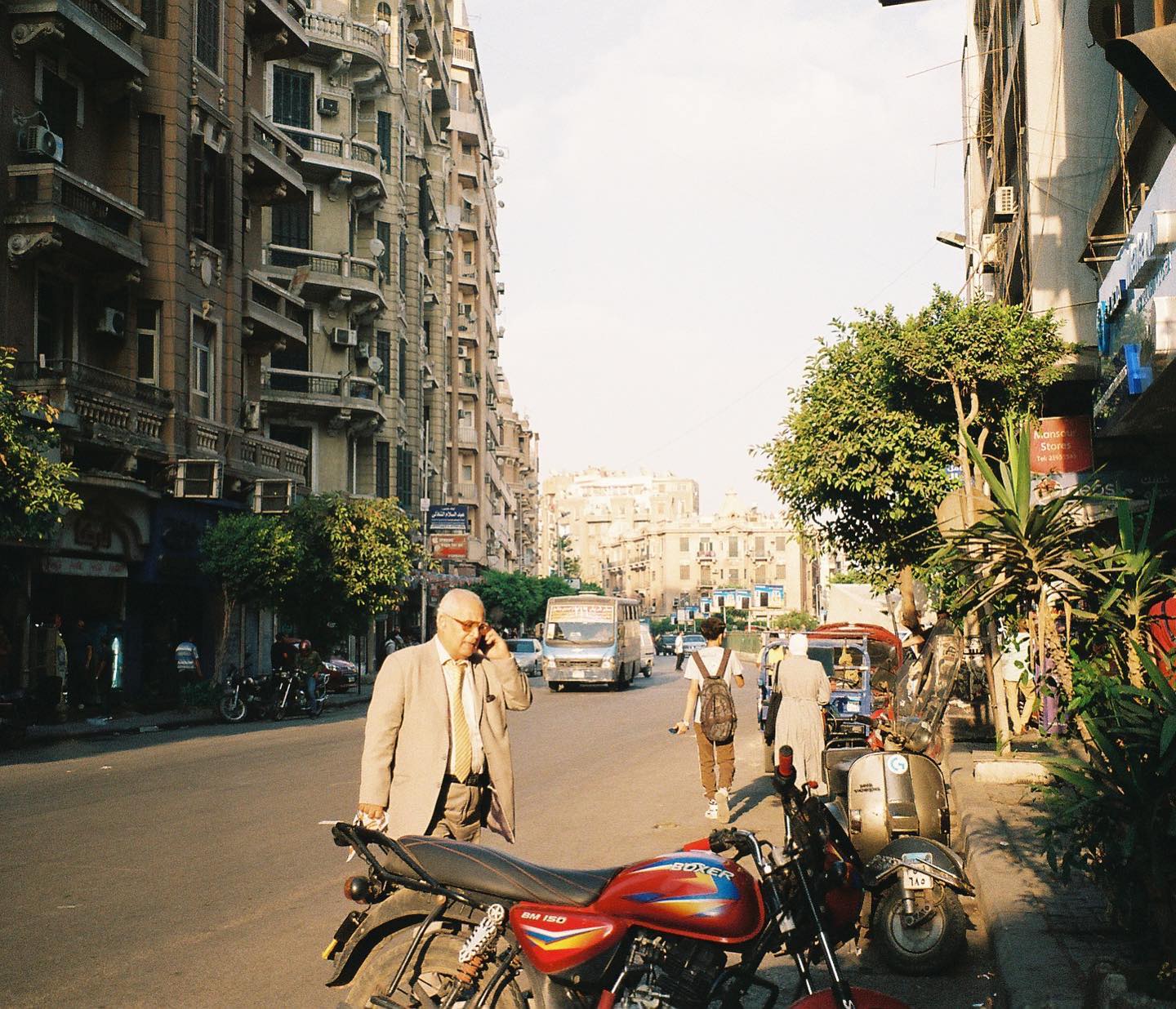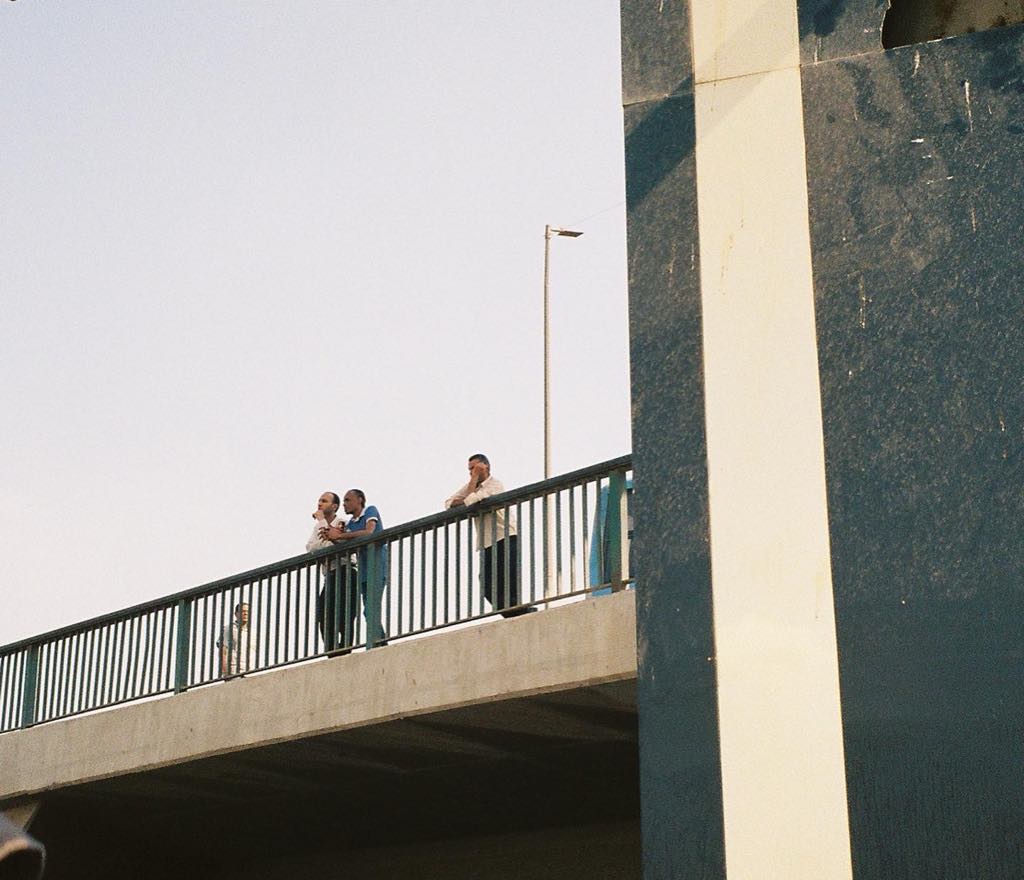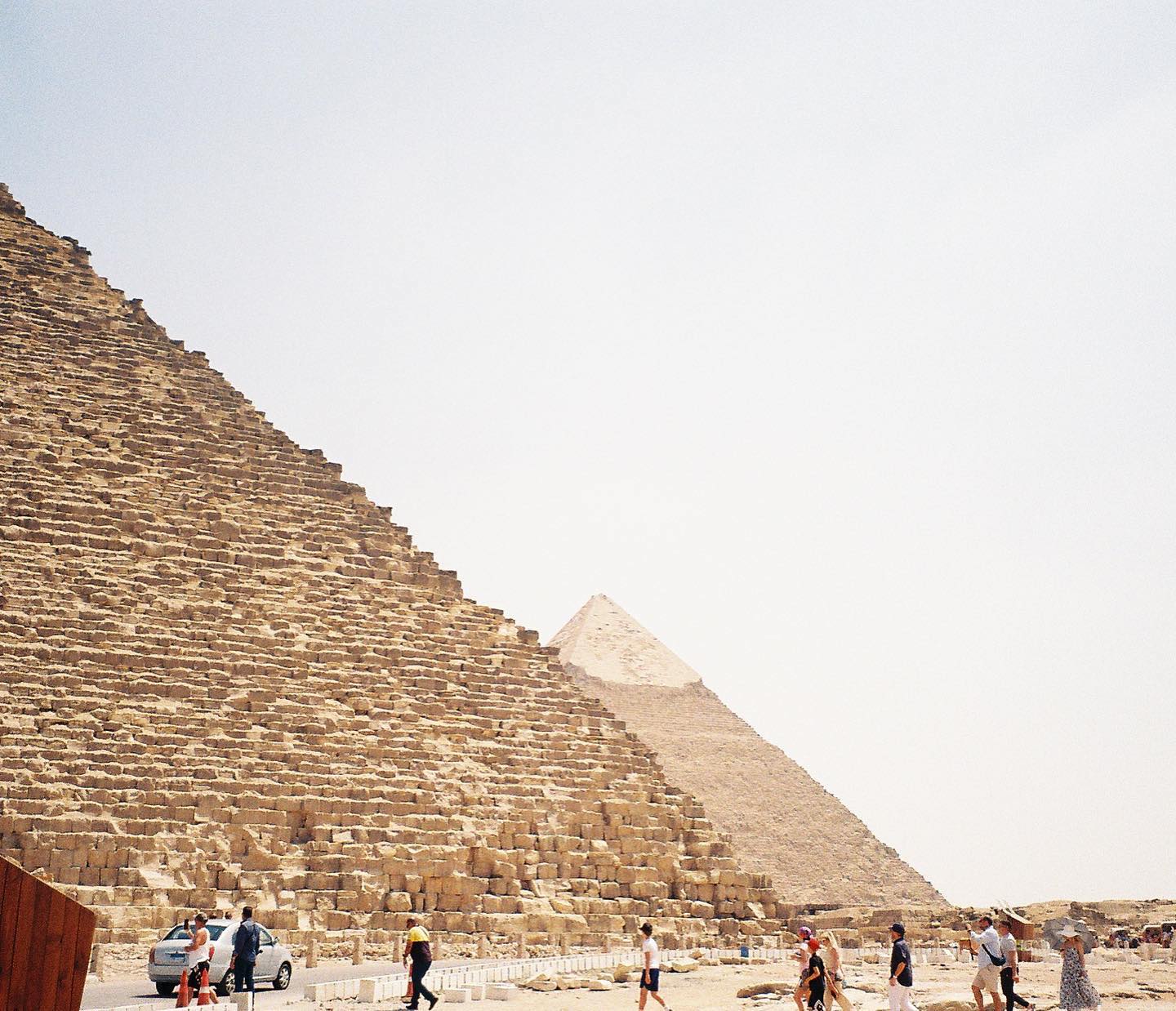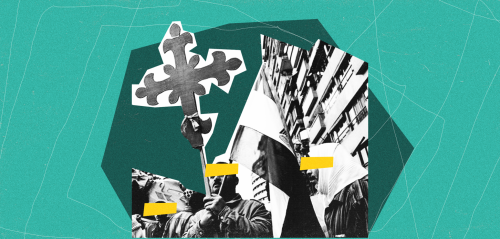I’ve considered Cairo my home. It is where I was born and spent the first seven years of my life. I can vividly recall the immense sadness I felt when my mother told me that we were relocating to Saudi Arabia. I knew that I would miss my grandmother's food and playing cards with my grandfather. At seventeen, that same feeling of sadness resurfaced after my mother announced that we were returning to Cairo.
Expats and migrants know that their adopted Gulf home will never truly be home, primarily because the number of expatriates far outweighs the number of nationals in almost all of the GCC countries. In Qatar, foreigners outnumber citizens by 7.3:1, with a significantly higher number of newly naturalized citizens than "native" citizens.
It is hard to pinpoint the exact reasons why thinking of Cairo can sometimes make me sad. Is it the relentless noise? The overwhelming pollution (whether noise, visual, or air)? The chaotic atmosphere? The never-ending traffic? The unnerving stares from strangers? Or perhaps, a combination of all these factors?
As a child growing up in the Gulf, my summers were always spent in Egypt. My childhood memories of Egypt are filled with beach vacations, family get-togethers and simply enjoying myself. At the end of each summer, when it was time to return "home," I cried saying goodbye to my grandmother, my favorite bakery, the neighborhood where I grew up, and the River Nile. The thought of seeing Cairo again in 10 months would keep me going. However, at seventeen, my mother decided that instead of leaving at the end of summer, we would stay for good.
Migration Patterns of Egyptians
 Cairo. Courtesy Laila Zohdy.
Cairo. Courtesy Laila Zohdy.
Like many other Egyptians, we left in search of a better life. Many Egyptians temporarily migrate to the Gulf, motivated by the possibility of earning higher wages, the promise of purchasing a home or building up savings.
Egypt, with an estimated population of 110 million, is the most populated country in the Arab world and serves as the primary source of migrant workers in the Middle East. According to Egypt’s Central Agency for Public Mobilization and Statistics, the Egyptian diaspora is close to 9.3 million people, with over 2 million Egyptians in Saudi Arabia alone.
Prior to the mid-1950s, Egypt was a common destination for foreigners, with Egyptians rarely relocating to other countries. The emigration of Egyptians was a result of not just the prosperous oil industry in Arab Gulf countries and the demand for workers in nearby nations, but also the financial challenges and rapid population growth in Egypt.
Prior to the Arab Spring, Libya presented another popular destination for Egyptians in search of work. Due to its proximity and opportunity, Libya proved a highly convenient option for those seeking to live and work abroad. Its construction industry was particularly populated by Egyptian workers. This trend began in the 1990s, when fewer people were traveling to Iraq due to the Gulf War.
Countless Egyptians also relocated to Western nations. Initially, this was primarily driven by individuals seeking to escape political persecution. However, the rise of political Islam in Egypt and the wider Middle East in the 1970s led to a large number of Copts leaving for the West. While some Coptic entrepreneurs relocated to the Gulf to start new businesses, others saw countries like Dubai as a temporary base from which to conduct business between the Gulf and Egypt. More recently, a significant number of Egyptians have migrated to Southern Europe via the Mediterranean, forming a sizable population of low-skilled Egyptian immigrants.
According to a Gallup survey from 2020, 77% of first-generation Egyptians living abroad indicated a desire to stay in their current country of residence, while 14% would prefer to move to another country and 9% would opt to return to Egypt.
 Cairo. Courtesy Laila Zohdy.
Cairo. Courtesy Laila Zohdy.
“Being Borrowed: On Egyptian Migration to the Gulf” by Farah Hallaba
Data and research on the temporary migration of Egyptians to the Gulf is lacking. Farah Hallaba, an Egyptian anthropologist and academic, founded Anthropology Bel3araby, an online video series dedicated to making certain anthropological concepts accessible and engaging in the Arabic language. Hallaba also conducts workshops on Social Anthropology (with a focus on class, family, and Egypt) and Visual Anthropology.
At the Contemporary Image Collective gallery in downtown Cairo, the exhibition "Being Borrowed: On Egyptian Migration to the Gulf'' highlighted perspectives of Egyptians residing in the Gulf through a collaborative and artistic approach. Led by Farah Hallaba and curated by Farida Youssef, the exhibition ran from 2-31 October, 2022, and explored themes including social status, ambition, familial relationships, identity, security, and mortality, with an emphasis on the nature of temporary migration. Drawing in almost 4,000 visitors, the display was a successful and imaginative venture, eventually leading to a three-month workshop.
Hallaba shared, “I believe that "Being Borrowed; On Egyptian Migration to the Gulf" was born from a sense of compassion and powerlessness towards my father, who is still living in the Gulf. He is unable to return to Egypt due to financial obligations, but his life in the Gulf is ultimately temporary. Despite spending 18 years of my life growing up in Riyadh, this project is not solely about my personal experiences. Through the artworks, you will see that it is a common occurrence for some of us to lose our memories in the Gulf. While I do have many memories and emotions tied to this experience, it is my father's solitary and monotonous life that weighs heavily on me. I couldn't ignore the fact that our family's story is just one small part of a larger phenomenon that affects many Egyptians. The migration to the Gulf has greatly impacted numerous lives.”
She continued, “During a trip to Saudi Arabia many years ago, my father revealed that he did not want to be laid to rest in that country. This statement struck me, as it made me reflect on how my parents' aspirations had changed since the 1990s. Initially, they had planned to go to Saudi Arabia for a short time and then return to achieve a better future. However, now my father's words showed a shift in their perspective. It made me think about how this sense of impermanence shapes our experiences, serving as a reminder that our time here is limited. Dying or being buried in the Gulf was not part of their plan. They were promised a return, even if it came decades later or in the form of a dead body. But what truly made this migration worthwhile was the hope of returning to our homeland, the desired home or social status, and the promise of permanence.”
“To my father, I feel for you
I don’t know how to express it, so I did this project.”
Sense of Belonging and Forced Return
At 17, after I moved back home to Cairo, I experienced a strong sense of not belonging. Many foreigners in the Gulf feel as though they don’t belong, both in their home country, and in the one they live in. It was difficult to view Egypt, my home country, as anything other than the destination I spent two-months vacationing in each summer.
According to a Gallup survey from 2020, 77% of first-generation Egyptians living abroad indicated a desire to stay in their current country of residence, while 14% would prefer to move to another country and 9% would opt to return to Egypt.
Regardless of the years one might spend residing in most Gulf nations, it is highly unlikely to obtain citizenship. Expats and migrants always carry the knowledge that their adopted Gulf home is not and will never truly be home, primarily because the number of expatriates far outweighs the number of nationals in almost all of the GCC countries. In Qatar, for example, foreigners outnumber citizens by 7.3:1, with a significantly higher number of newly naturalized citizens than "native" citizens.
GCC governments prioritize the well-being of their citizens, offering free healthcare, education, and subsidies for basic necessities such as electricity, water, petrol, and food. Granting citizenship to foreigners would place an even greater strain on the governments to continue providing these services, undesirable considering the budget deficits GCC countries are facing due to the decrease in oil prices.
Homesickness
 Cairo. Courtesy Laila Zohdy.
Cairo. Courtesy Laila Zohdy.
Through initiatives like that of Farah Hallaba and Farida Youssef, we are offered a glimpse into the lived experiences of migrants and their families. This serves as a reminder of the shared struggles and aspirations that transcend individual stories.
My experiences have resulted in the idea of home becoming a detached concept. Is it a place? A person, a meal, or certain belongings? Having migrated again to Europe at 18 to pursue my studies, I still feel a lack of belonging.
Despite it all, I can't shake my feelings of missing Cairo. Upon leaving, I start to feel a sense of yearning and nostalgia, and I think about the city: the chaos, the crowded streets, bargaining with vendors, the smiles of strangers, and the warmth of people greeting each other. I even miss the stray animals, my grandma's stuffed grape leaves, a plate of koshary that my stomach will regret later, and a boat ride on the Nile at sunset. Despite the suffering and the oppression that Egyptians have faced in recent years, we continue to live. People crave life. There remains a resilient spirit.
Raseef22 is a not for profit entity. Our focus is on quality journalism. Every contribution to the NasRaseef membership goes directly towards journalism production. We stand independent, not accepting corporate sponsorships, sponsored content or political funding.
Support our mission to keep Raseef22 available to all readers by clicking here!
Interested in writing with us? Check our pitch process here!








